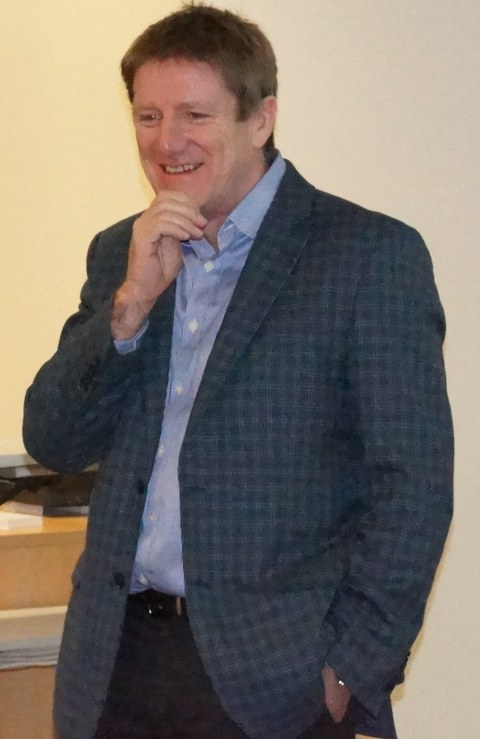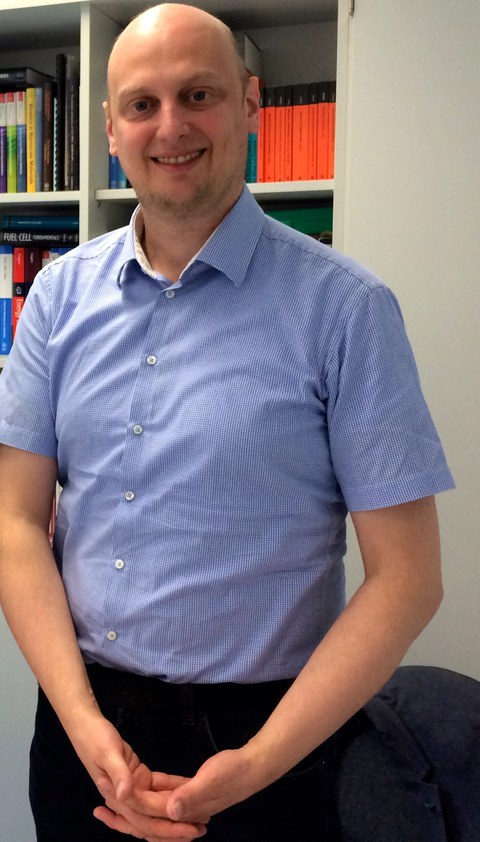Mercator Fellows
Two Mercator Fellowships were established within the SPP 1708 to integrate additional expertise and to increase international visibility.
Prof. Russell Edward Morris from the University of St Andrews accepted the invitation to become a Mercator Fellow of the second funding period of the SPP 1708.
The scientist was available for advice to the members of the priority programme in his function as Mercator-Fellow during his three stays in Germany. Thus, he played an active part in the sub-projects as well as enabled an intensive exchange between the researchers.
The ionothermal method for the preparation and processing, originally developed by Prof Russell Morris, is widely viewed as a ground-breaking and world-leading advance in the field. The primary concept, first published in Nature in 2004, is the use of ionic liquids as both solvent and structure directing agent in the formation of unusual materials with unique structure and function. Originally designed for the synthesis of porous solids, Prof Morris has extended the technique to almost all types of inorganic, organic and hybrid materials. The ionothermal method exhibits many unique features, such as the use of ambient pressure solvothermal conditions, the controlled delivery of structure directing agents, anion control (and the exquisite control over water as a mineraliser it allows) and effective chiral induction etc., which have enabled the synthesis of many new materials that cannot be accessed using other routes. An outstanding extension of this work is the use of ionothermal synthesis to produce a whole new class of quantum spin liquid, which is of great interest to the condensed matter physics community for their potential in quantum computing. Prof Morris pioneering work on ionothermal chemistry has stimulated a whole new field that is followed, elaborated and broadened by many research groups around the world – like those assembled in the SPP 1708. An exchange of ideas with an internationally renowned scientist in this field is highly appreciated and provides the opportunity to intensify existing collaborations or to create new ones.
During the first funding period, Prof. Peter Nockemann from Queen's University Belfast was involved in the SPP 1708 as Mercator Fellow.
Prof. Nockemann has been researching and teaching at the School of Chemistry and Chemical Engineering at Queen's University Belfast since November 2008. His research focus is on coordination chemistry in ionic liquids and the synthesis of (nano-)materials.
In the period from 22 June to 21 August 2015, Prof. Nockemann visited in addition to the TU Dresden five other project sites. The extremely positive feedback from the hosts proves that his stay was a complete success. He gave lectures on ionic liquids, talked to colleagues and doctoral researchers and discussed possibilities for further exchanges and cooperation. Thus, a total of 18 subprojects of the SPP 1708 have benefited from his expertise. Prof. Nockemann was especially praised for his didactically skilful lectures, which generated lively discussions. His interaction with young scientists is also noteworthy. For example, the doctoral researchers had an opportunity to gain a different perspective on their projects in a lengthy conversation with Peter Nockemann and to discuss their topic critically with an expert, however, without any performance pressure.
An intensive and long-term exchange with the members of the SPP 1708 and Prof. Nockemann as representative of the scientific community from abroad was established. Peter Nockemann was and remains in contact with the members of the project beyond the duration of his stay: Long-term cooperation and doctoral researcher exchanges were initiated and joint publications were issued. In September 2015, a doctoral researcher from the SPP 1708 was able to join Prof. Nockemann's research group to carry out joint measurements at the European Synchrotron Radiation Facility (ESRF) in Grenoble (France). Another doctoral researcher stayed for three months at Queen's University Belfast in the group of Prof. Nockemann for research purposes.


